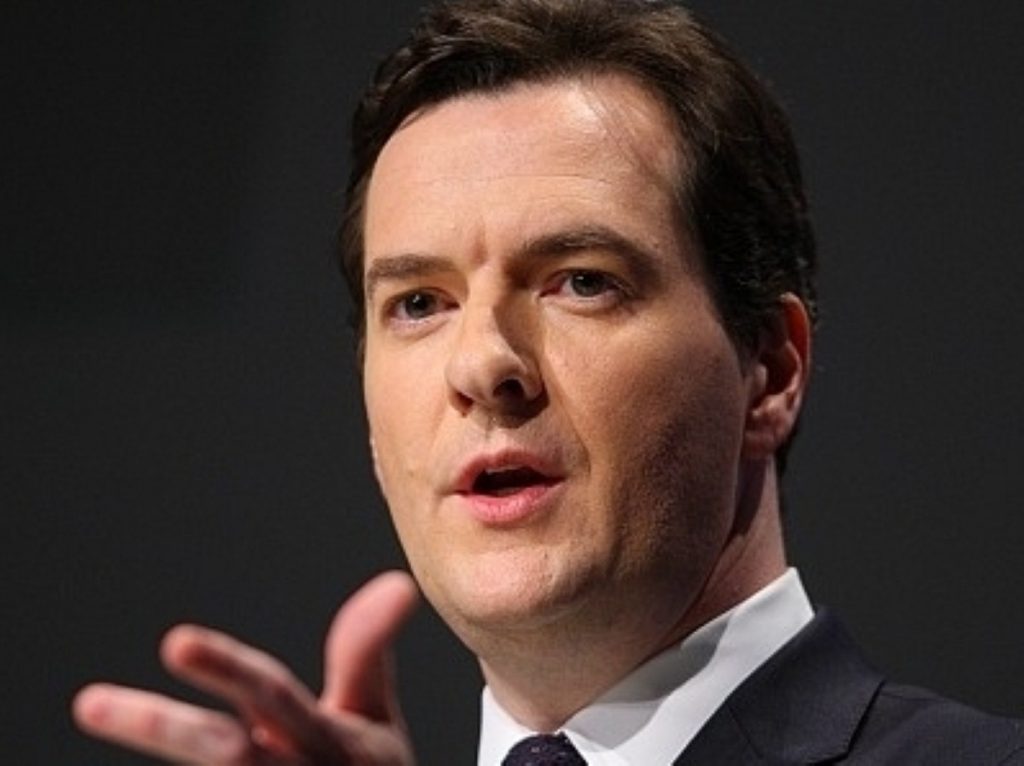Osborne’s fiscal charter shows the Tories have lost touch with reality
The modern Tory party plays tricks. That's part of the way it does business. It spent much of the last parliament trying to pass a bill guaranteeing an EU referendum this parliament, even though anyone with the tiniest glimmer of understanding about how politics works would tell you that the way to guarantee that is to win an election. It was a pathetic sight, watching Tory MPs line up to vote on a piece of legislation they knew had no meaning and which undercut centuries of useful British constitutional tradition.
But as it happens they did win the election, and George Osborne is spending much of this parliament talking about his so-called fiscal charter, which has replaced the referendum bill on the Mickey Mouse shelf. The charter demands that there's a surplus on public sector net borrowing by 2019-20 and that once achieved, it is maintained. It also demands that public sector debt as a percentage of GDP falls each year until 2019-20.
There is a get-out clause in it. If there's real GDP growth of less than one per cent on a rolling four-quarter-on-four-quarter basis, all bets are off. But if not, any future chancellor who fails to run a surplus would have the police after them. Except of course they won't, because this is all fairy tale nonsense with no substance behind it whatsoever.
The fiscal charter makes no more sense than the EU referendum bill but it has the disadvantage of being economically quite dangerous. Last Friday's Treasury committee report on the spending review lays out its flaws for all to see. Economists have been "critical" of the surplus target, saying it is not "credible" and that "in the handbook of possible fiscal rules" the government is choosing "a very, very, very bad one".


Michael Saunders, chief UK economist at Citigroup, said that "the cyclical adjustments should be there and done properly". Simon Kirby, head of macroeconomic modelling and forecasting at the National Institute for Economic and Social Research, branded the rule "dramatically inflexible".
The chorus of criticism is clear: setting an arbitrary rule that you have to maintain a surplus radically limits the chancellor's room to manoeuvre when there are economic problems. And the chancellor is presumably aware of the potential economic problems facing him, given he made a speech on them last month.
In Cardiff, Osborne warned of a "dangerous cocktail" of risks to the economy: stock market plunges, problems in Brazil and Russia and a dramatic fall in commodity prices. It's risks like these which mean he only has a 55% chance of hitting that 2019-20 surplus, according to the Office of Budget Responsibility (OBR). And yet Osborne carries on like an economic drunkard, splashing out the funds given to him by OBR modelling and forecasting changes on reversals to his tax credit cut. This reduces his flexibility even further.
If the surplus doesn't eventuate, Osborne will now need to raise taxes or cut spending. He has taken away the chancellor's other lever – borrowing – which may very well be the most sensible thing to do in the circumstances.
As the Treasury committee says:
"The surplus rule provides no flexibility to respond to changing economic circumstances. The rule leaves the government unable to use fiscal policy to respond either to such shocks abroad, or to a turn in the economic cycle at home. The committee agrees with the economists from whom it has heard and it is not convinced that the surplus rule is credible in its current form."
The rule makes no sense whatsoever on an economic level or as a matter of political principle. David Cameron recently defended the rule in the Commons, just moments after attacking the Human Rights Act for giving judges in Strasbourg power over national parliaments. It’s extraordinary that the prime minister can't follow through the logic of that argument. The fiscal charter takes one of the chancellor's powers – borrowing – and gives judges a veto over it. He is handing them more power than he'll ever get back from Strasbourg with his British bill of rights.
But then, the surplus rule is not meant to be enforced. Osborne will break his own welfare cap for the first three years it's supposed to be online and no-one bats an eyelid. There is no sustained critical coverage of the chancellor in the press to hold him to account on this stuff. After all, he is currently running on a deficit reduction timetable suggested by Alistair Darling, which Osborne once attacked in the most poisonous terms, and still the press take his claims of sensible financial management at face value.
The real purpose of the surplus rule is to provide a clear red line between Labour and the Tories. The opposition has played its part as expected. First John McDonnell said he would sign up to it. Then he said he wouldn't. If the job of the chancellor were to make the opposition uncomfortable, Osborne would win full marks. But if the job is to soundly manage the economy, he would win none.
Like the EU referendum bill, or Theresa May's attacks on imaginary health tourists, or Iain Duncan Smith's insistence on the effectiveness of his welfare reforms, this is another example of post-reality governance: policy based not on the real world, but on an imaginary one of PR messaging in which the sole purpose is stay in power by finding lines of public opinion and putting the opposition on the wrong side of them. There is no substance behind the message, and where there is, it is actively damaging to the efficient running of the chancellor's office. This is a government which prioritises rhetoric and positioning above objective reality.

